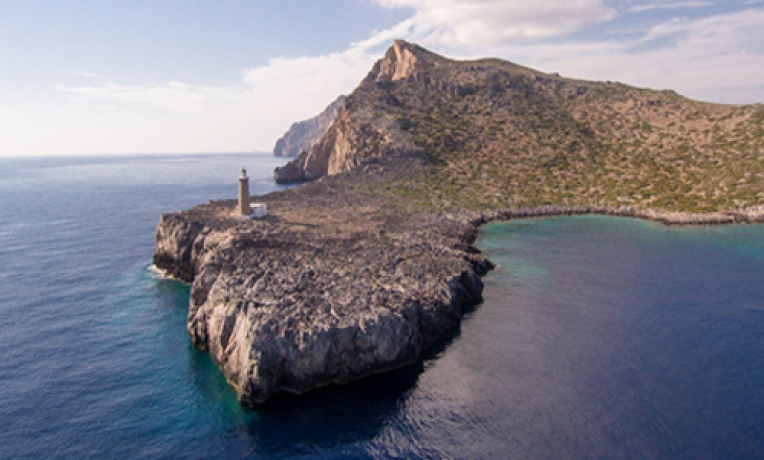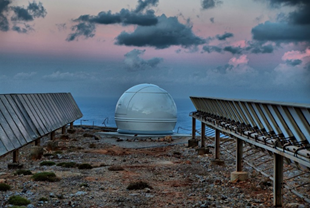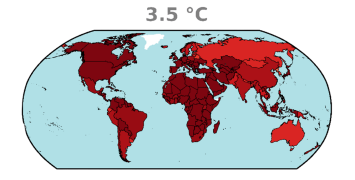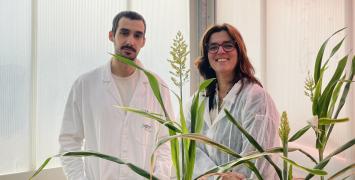The tiny island with a big impact on climate research
Amidst the raspy jabbering of Buzzards on a remote island at the edge of the Aegean Sea, one ambitious ERC grantee, Dr. Vassilis Amiridis, instigated the construction of a climate change superstation with the enthusiastic support of the ERC, the National Observatory of Athens (NOA) and the Greek government.

With an ERC Consolidator Grant worth 2 million euros, Dr. Amiridis, together with the NOA, are leading the development of the PANhellenic GEophysical observatory of Antikythera (PANGEA), a new flagship Research Infrastructure of NOA, fitted with sophisticated research equipment to monitor and record climate change, air quality and severe weather.
Sorry, your browser doesn't support embedded videos.
© Cosmote TV
Due to the island’s ideal geographical position, which stands at the intersection of air masses coming in from the Sahara Desert, the Etna Volcano and major megacities, NOA and the Greek government are excited by the potential for PANGEA to become a first class Research Infrastructure, in direct line with the monitoring standards of the World Meteorological Organization. The Observatory will also represent Greece in National and Pan-European Research Infrastructures such as ACTRIS, ICOS and EPOS. A vision they hope will help Greece monitor, assess and tackle regional climate change under the Paris Climate Agreement.
At the heart of this ERC funded project, called D-TECT, is the aim to shed some sunny Mediterranean light on the lifecycle of mysterious giant desert dust particles that have long puzzled scientists. The team are looking to ascertain whether so-called ‘triboelectric charging’ (what happens when you rub a balloon on your head and your hair stands up on end) generates an electric field capable of holding large dust particles in the atmosphere.

A 3m astronomical dome with sun-tracking capabilities, installed in a specialized platform at the eastern side of the Antikythera station. It hosts the SolPol solar polarimeter.
The researchers are carrying out field experiments with the new, sophisticated polarization lidar system (so-called Wall-E), to detect and characterize the orientation of dust particles. This information is sent back to NOA with the aim to improve the theoretical understanding and current simulations of these enigmatic dust lifecycles.
PANGEA is also streaming essential climate variables related to climate change, air quality and natural disasters in real-time to the Greek State, academia and research centres, with the hope of improving climate projections at the regional scale for effective mitigation and adaptation.
The prospect of a supersite on this remote island has captured the interest of the European Investment Bank which will invest 20 million euros in the atmospheric monitoring at the Observatory, while private companies and foundations in Greece also support the establishment (e.g. COSMOTE and Stavros Niarchos Foundation).
It is not only NOA and the Greek government who have high hopes for this new ‘island of science’. The Mayor of Kythera, Efstratios Harhalakis, is pleased that the setting up and expansion of PANGEA will create new jobs, develop scientific tourism - alongside well-established tourism to the Antikythera Bird Observatory and help repopulate an island with under 50 people.
This remote Ionian island is increasingly coming into the limelight as a main reference point for climate, energy and weather research in the Eastern Mediterranean and all from an ERC grant to study how giant dust particles hang in the air.
Biography
Vassilis Amiridis (VA) is a Research Director at the National Observatory of Athens (NOA). His work focuses on the impact of atmospheric aerosols and clouds on radiation, weather and climate. He leads the ReACT Atmospheric Remote Sensing group at NOA, responsible for the operation of ground-based remote sensing instruments (passive and active remote sensing techniques) and for the development of theoretical models. He is the PI of the PANGEA Remote Sensing Research Infrastructure at the island of Antikythera. His lidar-related activities have been acknowledged by the European Aerosol Research Lidar Network (EARLINET), which elected him as council member for the periods 2012-2016 and 2016-2020. Dr. Amiridis acted as the Greek National Delegate for the Copernicus Committee for the period 2014-2017 and National Representative in Interim ACTRIS council. In 2016, he received an ERC Consolidator Grant for studying desert dust dynamics, transport and interaction with radiation.






